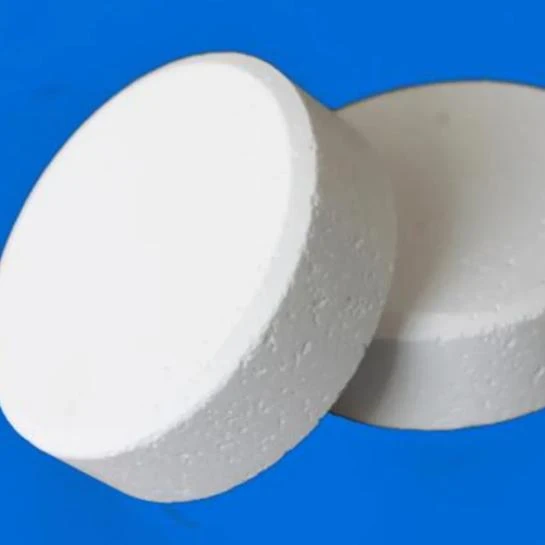
e951 sweetener
Understanding E951 Sweetener Aspartame and Its Implications
In today’s health-conscious society, the demand for sugar alternatives has surged, leading to the widespread use of artificial sweeteners. Among the most well-known is E951, commonly known as aspartame. This low-calorie sweetener has sparked extensive debate regarding its safety, health effects, and culinary applications. In this article, we will explore what E951 is, its uses, and the ongoing discussions surrounding its consumption.
What is E951?
E951, or aspartame, is a low-calorie artificial sweetener that is approximately 200 times sweeter than sucrose, or regular sugar. Chemically, it is a dipeptide methyl ester composed of two amino acids aspartic acid and phenylalanine. As a result of this unique structure, aspartame is metabolized in the body into its constituent amino acids and methanol, all of which are naturally occurring substances found in various foods and beverages.
Aspartame is commonly used in a variety of products, including diet sodas, sugar-free gums, candies, and even some baked goods. Its sweetness allows manufacturers to reduce the calorie content of their products while still satisfying the taste buds of those looking to limit sugar intake.
Health Implications
The safety of aspartame has been a contentious topic since it was introduced as a food additive. Regulatory authorities worldwide, including the U.S. Food and Drug Administration (FDA), the European Food Safety Authority (EFSA), and the World Health Organization (WHO), have conducted exhaustive reviews of its safety. The consensus is that aspartame is safe for the general population when consumed within established daily intake levels.
However, there are specific groups, such as individuals with phenylketonuria (PKU), a rare genetic disorder, who must avoid aspartame entirely. PKU patients cannot metabolize phenylalanine, one of aspartame’s components, leading to dangerous health consequences if consumed. Consequently, products containing aspartame are required to carry warning labels to alert consumers about its presence.
e951 sweetener

Controversies and Myths
Despite the backing of numerous health authorities, aspartame has been at the center of various controversies. Some studies and health advocates claim potential links between aspartame and a range of health issues, including cancer, neurological disorders, and metabolic concerns. However, comprehensive reviews of the scientific literature have failed to substantiate these claims. Investigations have consistently shown that when consumed within recommended limits, aspartame does not pose a significant risk to human health.
Nonetheless, the persistent skepticism surrounding artificial sweeteners has led some consumers to avoid them altogether, opting for natural sweeteners like stevia or monk fruit instead. The trend toward natural products reflects a broader shift in consumer behavior, seeking transparency and minimizing artificial ingredients in their diets.
Culinary Uses and Benefits
Aspartame’s sweetness is often utilized in low-calorie and sugar-free products, making it a popular choice among manufacturers. Its versatility allows it to be used in beverages, desserts, and savory dishes, making it an attractive ingredient for those looking to enhance flavor without adding calories. Aspartame is heat-sensitive, so it is not suitable for high-heat cooking or baking; however, its ability to sweeten drinks and cold dishes is unparalleled.
One of the significant benefits of aspartame is its contribution to weight management strategies for those dealing with obesity or diabetes. By substituting sugar with aspartame, individuals can enjoy sweet flavors with minimal caloric impact, aiding in weight control and blood sugar management.
Conclusion
E951, or aspartame, continues to be a prominent sugar substitute in the food and beverage industry. While its safety has been affirmed by numerous health organizations, ongoing discussions highlight consumer concerns about the long-term effects of artificial sweeteners. As our understanding of nutrition evolves, consumers are encouraged to educate themselves, make informed choices, and consider their health goals when it comes to sweeteners. Ultimately, whether one chooses aspartame or another sweetening option, moderation remains key to maintaining a balanced diet.
-
The Safety Challenges of Ammonium Nitrate FertilizerNewsJun.26,2025
-
The Critical Role of Mining ChemicalsNewsJun.26,2025
-
Shelf Life of Glacial Acetic Acid Food GradeNewsJun.26,2025
-
Enhancing PVC Longevity with 1,2,3-Benzotriazole InnovationsNewsJun.26,2025
-
China’s Dominance in Food Additive ProductionNewsJun.26,2025
-
Can Aluminum Hydroxide Replace More Toxic Alternatives?NewsJun.26,2025
-
PE and PP Plastics with Benzotriazole AdditivesNewsJun.12,2025
Hebei Tenger Chemical Technology Co., Ltd. focuses on the chemical industry and is committed to the export service of chemical raw materials.
-

view more DiethanolisopropanolamineIn the ever-growing field of chemical solutions, diethanolisopropanolamine (DEIPA) stands out as a versatile and important compound. Due to its unique chemical structure and properties, DEIPA is of interest to various industries including construction, personal care, and agriculture. -

view more TriisopropanolamineTriisopropanolamine (TIPA) alkanol amine substance, is a kind of alcohol amine compound with amino and alcohol hydroxyl, and because of its molecules contains both amino and hydroxyl. -

view more Tetramethyl Thiuram DisulfideTetramethyl thiuram disulfide, also known as TMTD, is a white to light-yellow powder with a distinct sulfur-like odor. It is soluble in organic solvents such as benzene, acetone, and ethyl acetate, making it highly versatile for use in different formulations. TMTD is known for its excellent vulcanization acceleration properties, which makes it a key ingredient in the production of rubber products. Additionally, it acts as an effective fungicide and bactericide, making it valuable in agricultural applications. Its high purity and stability ensure consistent performance, making it a preferred choice for manufacturers across various industries.











